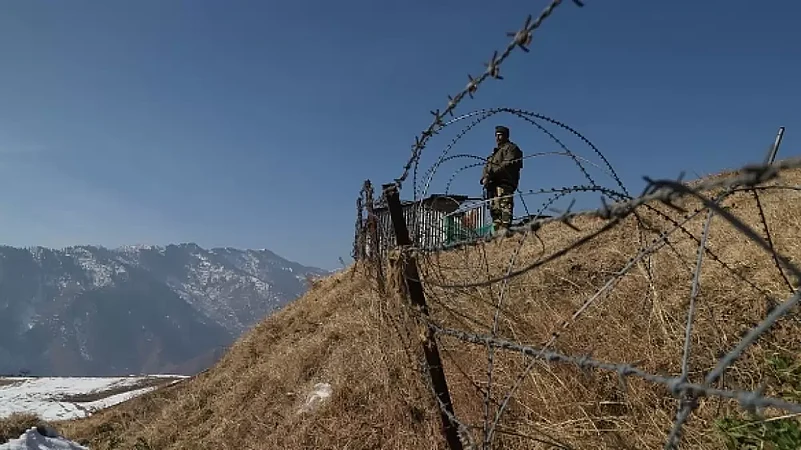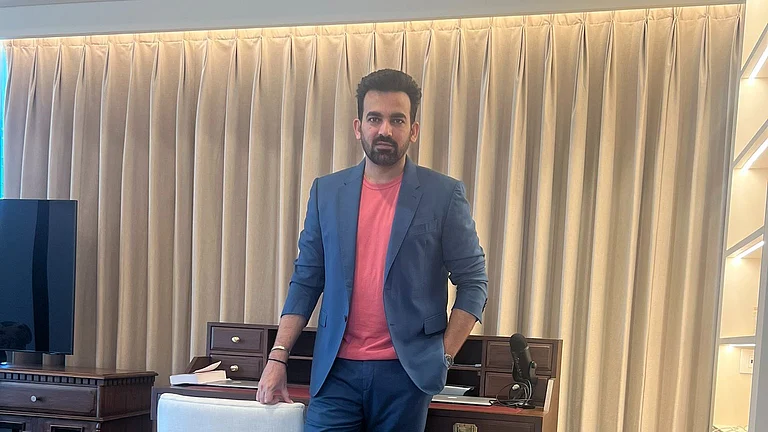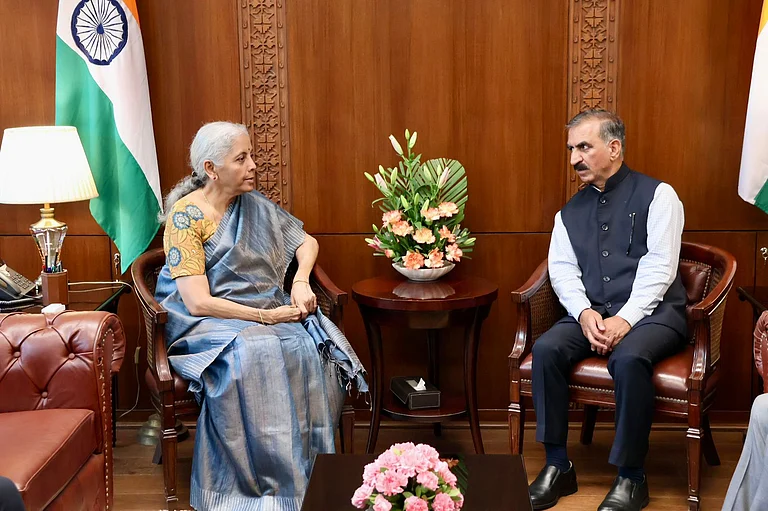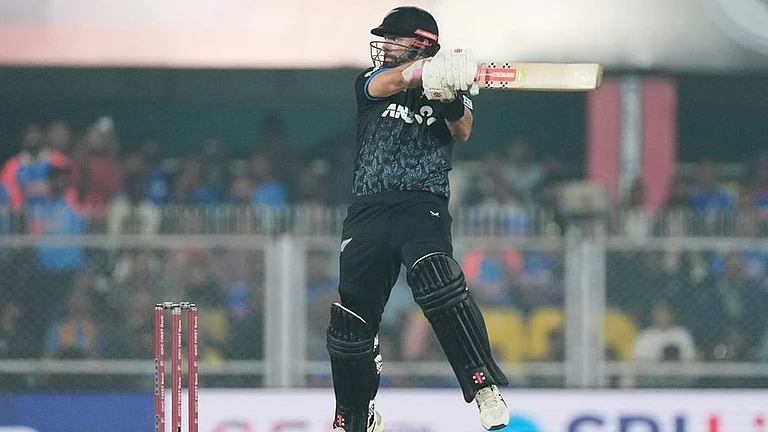“It is not stress that kills us, it’s our reaction to it,” says Hans Selye, the pioneer Hungarian-Canadian endocrinologist.
Nityanand Rai, Minister of State for Home Affairs, replying to a question by Sushil Kumar Modi in the Rajya Sabha on August 4, 2021, said: “As per data provided by the Central Armed Police Force (CAPFs) and the Assam Rifles (AR), 680 personnel have committed suicide during the last six years. Domestic factors, illness and financial problems among others could be the contributing factors behind the suicides.”
Rai enlisted some of the measures undertaken to reduce stress and improve the working conditions such as transparent policies pertaining to transfer and leaves; regular interaction of officers with troops to find out and redress grievances; adequate rest and relief; improving the living conditions for troops; and, providing better medical facilities. The key point is the acknowledgement that stress is an issue in CAPFs, and needs in-depth analysis and improvements in the administrative infrastructure for better comfort level of CAPF personnel.
CAPFs are a million-plus resource available at the command of the government. They have a well-defined primary role of internal security and border guarding. Both internal security and border guarding forces are deployed to aid civil power on a need basis. CAPF personnel are deployed in low intensity conflict areas; in Left-Wing Extremist (LWE) environment; on highly-sensitive and volatile land and riverine borders; in high altitude; and, in Sir Creek, which flows into the Arabian Sea. While deployed in highly-stressful environment, CAPF personnel face multifarious stressors, which affect them physically, emotionally, and mentally, and, in turn, affects their performance. The stress can be operational, physical, and mental stress of the operational area, administrative and governance-related, domestic and social in nature. Personnel, because of these stressors, suffer from symptoms of physical and mental fatigue. These stressors lead to psychological morbidity, behavioural aberrations, frustration, anxiety, irritation, increased alcohol intake, indiscipline thereby affecting performance. They also cause domestic and social stress leading to tensions on the domestic and social front.
No individual and occupation is stress-free. There is stress in every occupation. However, due to the job peculiarities, stress in CAPFs is higher when compared with other occupations.
As per a news statement, the Parliamentary Standing Committee on Home Affairs in its report on demands for grants (2022-23), had expressed concern over the increase in suicide and attrition in CAPFs. The committee had asked the Ministry of Home Affairs (MHA) about the main reasons behind increasing attrition in CAPFs, especially the BSF and the CRPF. In its reply, the ministry listed several reasons like continuous and prolonged deployment in hard and inhospitable areas and being away from family. It also listed lesser opportunity for static and soft postings and increased responsibility towards family after certain period of service. The MHA, in its reply to the committee, said that suicides in CAPFs could be largely due to stress of the job, monotony, disputes with family, including property and land disputes, health, domestic and financial stress.
There are many reasons for stress and most of these are related to service and work conditions, which have a bearing on domestic and social life. Work and service stress also lead to domestic and social stress, as men are unable to fulfil domestic and social obligations. It affects them both professionally and personally. It sometimes leads to domestic tensions, brawls and infighting at home causing anxiety, irritation and frustration, which sometimes culminates in suicides and sometimes in fratricides too. It has been observed that on many occasions, individuals commit suicide immediately after they return from leave. The reason for that is not leave, but their inability to fulfil domestic and social demands creating tension in the family, which the soldier is unable to handle and frustration overtakes him. He commits either suicide or fratricide affecting his family, fellow soldiers, the morale of sub unit and unit.
It is an established fact that stress is part of everyday life. CAPF trooper’s life is no exception to that. He needs to accept that he has voluntarily chosen a profession which is full of occupational hazards and challenges, which cause stress, affects him physically and emotionally and leads to diminished performance. There is need for measures from the government and the respective CAPFs to reduce stress among its personnel. Both need to work distinctly and in tandem with each other to reduce stress and make it a tool to optimise performance. The government needs to work on steps to ensure timely promotions, financial upgradations, timely fulfilling of vacancies to reduce work hours to ensure rest, create adequate accommodation for personnel and families and proper medical facilities. Similarly, each CAPF needs to devise ways and means to have an effective grievance redressal mechanism, timely leave, timely dispersal of monetary allowances and availability of quality provisions in terms of food and equipment, which affect personnel, their physical and mental health and performance.
In its draft report, the MHA task force headed by V S Kalmudi, Special Secretary (internal security), found three major factors —service conditions, working conditions, and personal/individual issues— that led to suicides and fratricides. It cited discrimination among sub groups, trauma of being abused, bullying at workplace, fear of initiation of disciplinary or legal action, lack of communication between company commanders and jawans as some of reasons for suicides and fratricides. What comes out is that in addition to affirmative action to improve service and working conditions, there is a need to make the leadership accountable at all levels for the management of stress
What needs to be done so that stress can be managed and it enhances effectiveness? First input is training to enhance output. While training personnel to task-related risks and difficulties by setting goals, instructors must be aware that such goals, though not impossible, are difficult to achieve without going through a lot of stress. Like exposure to weather vagaries like extreme cold would put personnel under a lot of stress, but efforts should be made so that they gradually set their mental faculty in such a way so that they are able to work in adverse environments without affecting their performance. Professional training can act as a stress buster.
Moreover, personnel should be trained effectively on their personnel weapons and equipment which they are supposed to handle all the time. Adequate training in handling and maintenance of equipment also enhances the confidence of men with equipment, enhancing their performance while simultaneously reducing stress. Another important aspect is to have individual and collective training in tactical groups of section, platoon and company by ensuring homogeneity of these tactical groups. Groups trained together, function collectively as well-knit team in stressful operational environment thus becoming stress moderators/busters due to effective cooperation, coordination that enhances regimentation. Regimentation improves efficiency and performance, fear of failure reduces, thus, enhancing efficiency and reducing stress.
In border guarding, personnel undergo long hours of duty, which involves standing for hours together continuously, especially during the foggy season in Punjab and Jammu and Kashmir on the international border. When it is extremely cold, visibility is low, and there is fear of smugglers and anti-national elements taking advantage of low visibility and extreme cold to smuggle drugs, etc. In such an operational environment, personnel are deprived of sleep. Stress levels among personnel in such an environment phenomenally increase as personnel suffer from the fear of attempted smuggling. Lack of sleep/rest impairs judgment and exposes all human faculties to lethargy and laziness. Before the onset of such season, the personnel need to be trained and acquainted to such vagaries to make them understand the situation which they are likely to face. Then, the personnel will be ready to face such situations and that will enhance their effectiveness and keep stress within tolerable limits. In CAPFs, multitasking is a norm and soldiers perform multifarious duties, which they may find difficult to accomplish and become a source of stress. Task allocation has to be fair and impartial. There have been incidents of fratricide by troops citing unfair and partial duty allotment putting soldiers under stress. Such incidents happen when complaints are not heard or casually dismissed. Therefore, duty allocation has to be fair.
The most important aspect of stress management is leadership involvement with men on and off duty to know their collective and individual problems and resolve them. This also involves an effective grievance redressal mechanism at both the company and battalion levels. Leadership has to be interactive with men at the formal and at the informal levels. In CAPFs, a well-established system of formal and informal interactions exists at the battalion level, where commandant and his staff officers interact with men formally to resolve grievances received from men by interviewing them. Informal interactions are through interview sessions before leave, after leave, before proceeding on course and after course and during duty hours as and when the opportunity arises.
However, there is a need to develop a system of formal and informal interactions at the company level. An effective interaction regime, both formal and informal, will play a big role in reducing stress among men on the professional as well as on the personal front. Also, leadership at the company and battalion levels needs to keep a tab on the pulse of men through a well-established system of monitoring behaviour and actions through subordinate leadership of section and platoon commanders. If a jawan is disturbed, it is important to immediately interact with him; find the reasons for his disturbance; and, try to remove the factors causing disturbance. It will reassure him and send a message to others that the command cares for them.
If a soldier’s behaviour is suspect and unreliable, withdraw his weapon, interact with him, find out the cause of his unreliable behaviour and take action to address the issue. At company/platoon levels, avoid physically restraining a soldier unless safety concerns demand. In that case, remove him from the company/platoon to a location where he can be medically examined and counselled. Whenever such an eventuality arises, interact with his co-soldiers to apprise them of the circumstances of removal and assure them that he would join them as soon as his condition improves, just to keep up their morale.
Stress among CAPF personnel needs to be kept within tolerable limits to optimise their performance. It need to be appreciated that CAPF personnel are deployed in highly-sensitive operational zones, exposed to dangerous insurgency, Left-wing extremism, counterpart firing and smuggling, where the threat to life is omnipresent.
This adds another dimension of worry and fear on the domestic front where care for the family is dependent on their wellbeing. This has become more pronounced since the evolution of the nuclear family system after the disintegration of joint family system. All these operational and domestic issues affect personnel physically and emotionally. Those who are not able to cope up with this stress withdraw into their own self-made cocoon and when not able to handle the stress, resort to violence in the form of suicide or fratricide.
The role of the leadership has become very imperative in controlling stress. The leadership needs to play an effective, active and positive part to keep tab on the pulse of men through a well-devised system. It also needs to ensure effective training, interacting both on the formal and informal fronts to know the pulse of men keeping abreast with service and domestic issues of men to address them. The leadership needs to work in a mission mode to devise ways to reduce stress among armed personnel for better organisational effectiveness. As Bill Philips, an American entrepreneur and author, says, “Stress should be a powerful driving force, not an obstacle.” It is achievable and the CAPF leadership needs to translate this into practice.
(Views are personal to the author.)






















